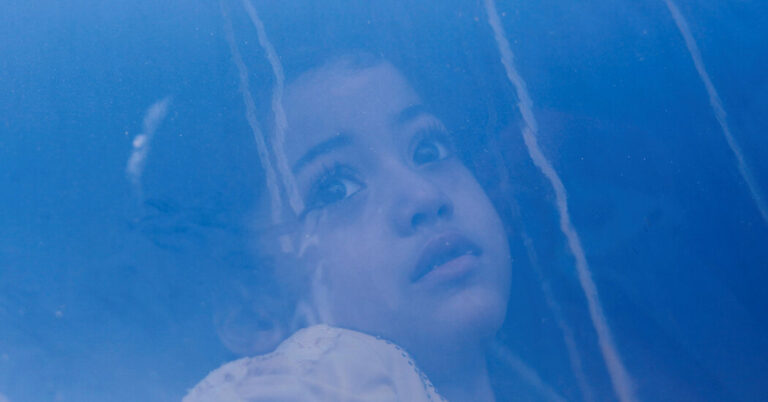Israel and Egypt agreed Thursday to allow at least 19 sick children, most of them suffering from cancer, to leave Gaza for medical treatment, Israeli and Palestinian officials said, in the first major evacuation of seriously ill Gazans since the closure of the Rafah border post in 2017. in early May.
The Israeli military said the operation was carried out in coordination with the United States, Egypt and the international community. In total, 68 people, sick and injured, as well as their companions, were authorized to leave the territory, the army said.
Tania Hary, who heads Gisha, an Israeli nonprofit that advocates free movement for Palestinians, said she was relieved that children could “have a chance at life and finally receive the care they deserve.” But she stressed that many other sick and wounded remained stuck in Gaza, with no obvious mechanism to evacuate them.
“This is a drop in an ocean of suffering, as thousands more wait to be admitted to medical centers outside the Gaza Strip,” she said. “This reminds us once again that Gaza’s most vulnerable residents – children, the sick and the elderly – pay the highest price. »
More than 10,000 sick and wounded people in Gaza need emergency care that is only available outside the enclave, according to the World Health Organization. said this week. These include those injured in the airstrikes, as well as cancer patients, children with life-threatening illnesses and elderly people requiring open-heart surgery.
Even before the war, many Gazans were forced to travel abroad to receive life-saving treatments, such as chemotherapy, which were virtually nonexistent in the Gaza Strip. The enclave’s health sector has been struggling for more than 15 years under a crippling Israeli-Egyptian blockade aimed at containing Hamas.
But the main channel through which Gazans could leave the territory – the Rafah crossing with Egypt – was closed after Israeli forces seized the border in May in a military offensive. Egypt closed its side of the gate in protest, and the Gaza side was later destroyed in a fire, according to the Israeli military, apparently dashing hopes that it would be reopened in the near future.
At least two sick Gazans who were due to leave in early May have died, family members said.
With the Rafah crossing closed, the group of children evacuated on Thursday were taken into Israeli territory via another border crossing, Kerem Shalom, before being taken to Egypt. The move does not appear to immediately herald a new permanent route for seriously ill children to leave Gaza safely.
One of the children who made the crossing on Thursday was a 10-month-old girl named Sadeel Hamdan.
For months, his family watched with growing concern as Sadeel’s condition deteriorated. Her stomach swelled like a balloon from severe liver failure and she desperately needed a transplant, said her father, Tamer Hamdan.
On Thursday morning, after weeks of waiting, Mr. Hamdan and Sadeel were finally allowed to leave the enclave. After entering Israel, they were transported with other patients to Nitzana, an Israeli border crossing, from where they crossed into Egyptian territory, he said.
“Thank God,” Mr. Hamdan said by telephone as he sat on a bus on the Egyptian side of the checkpoint. “We are so happy to have gotten Sadeel out safely. Now we just have to finish his treatment.”
Their departure from Gaza, however, was bittersweet.
Mr. Hamdan traveled with his daughter so he could partially donate her liver, but his wife and three other children were not allowed to join them. He said he feared for their fate in Gaza.
“We are all heading into the unknown,” he said.
For every patient who left, many more remained behind. Muna Abu Holi, a university professor in central Gaza, survived an explosion that killed one of her daughters and seriously injured two others.
According to Gaza Health Ministry documents, his two surviving daughters were allowed to cross the Rafah border crossing on May 7 to receive medical treatment. But the Israeli offensive led to the closure of the border.
“We are looking for any possible hope,” Ms. Abu Holi said. “Every news we hear, we latch on to it. »


